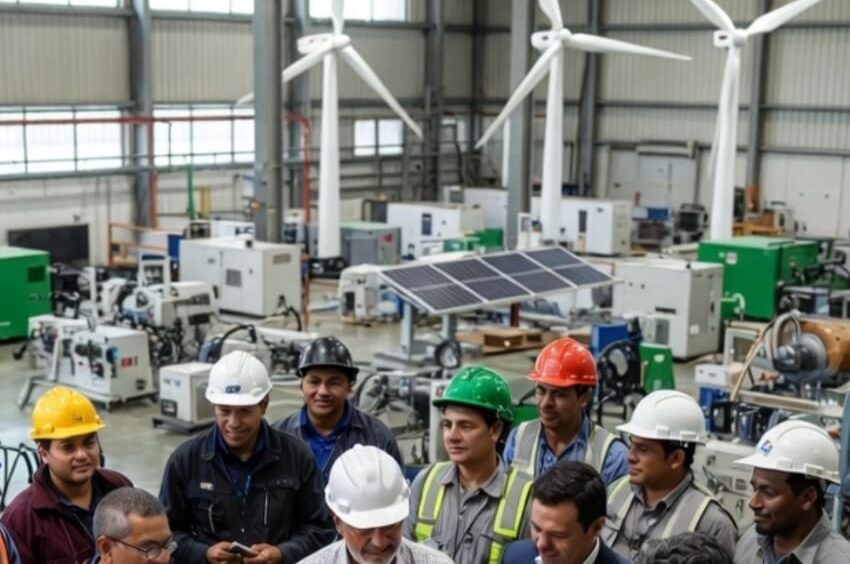35 Countries Back Belém Declaration To Drive Global Green Industrialisation

Leaders frame pact as bridge between climate ambition and development, centred on jobs and the Global South
Thirty-five countries, international organisations and initiatives on Friday endorsed the Belém Declaration for Green Industrialisation at a leaders’ meeting during COP30, setting out a joint effort to align climate goals with industrial transformation and inclusive growth.
The declaration outlines environmental, economic and social objectives aimed at reshaping production systems, driving technological innovation and supporting a more sustainable model of global growth. Signatories pledge coordinated actions to speed up the energy transition, modernise industry and expand space for developing nations within the green economy.
Brazil’s Vice President Geraldo Alckmin said the initiative was about moving from headline climate pledges to structural changes in the real economy.
“Climate goals must be matched by real economic transformation,” he said. “Green industry is about advancing sectors and creating future-oriented jobs, ensuring that all countries, especially those in the Global South, can lead and benefit from this new era of sustainable prosperity.”
From Negotiation To Implementation
COP30 CEO Ana Toni said green industrialisation had become “an irreversible agenda”, arguing that the priority now was implementation.
“We need to work together to ensure that all countries advance in the best way possible,” she said, welcoming the speed with which the topic had moved from negotiation rooms to practical cooperation.
She stressed that the declaration is designed as a platform for wider engagement. “We can bring other countries with us, engage additional industries, and work with governments and lawmakers to understand the framework in each case,” she noted, pointing to work ahead on regulation and investment conditions.
Gerd Müller, Director General of the United Nations Industrial Development Organization (UNIDO), called the moment historic for the industrial transition.
“We are connecting climate goals to concrete actions for industry, mobilising innovation, investment, and inclusion,” he said. UNIDO, he added, would work with partners “to ensure not only industrial decarbonisation, but also development, job creation, and technological progress”.
Jobs, Social Stability And Coordinated Transition
The Brazilian government linked the declaration closely to a jobs and inclusion agenda. Júlia Cruz, Secretary for Green Economy, Decarbonisation and Bioindustry at the Ministry of Development, Industry, Trade and Services, said the transition must consider workers and communities whose livelihoods are tied to existing industrial and energy systems.
“We must ensure jobs and real benefits for these communities,” she said. “Without a development strategy for them, they will look for other ways to survive, including in criminal markets such as illegal logging or mining.”
The Belém Declaration also seeks to tighten coordination among COP initiatives on industrial transformation, aligning work on technology, supply chains and policy design. It calls for greater financial and technical support to implement sustainable industrial policies, particularly in developing countries.
The document remains open for additional countries and organisations, offering what organisers describe as a collective framework for advancing green industrialisation under the COP30 process.































































































































































































































































































































































































































































































































































































































































































































































































































































































































































































































































































